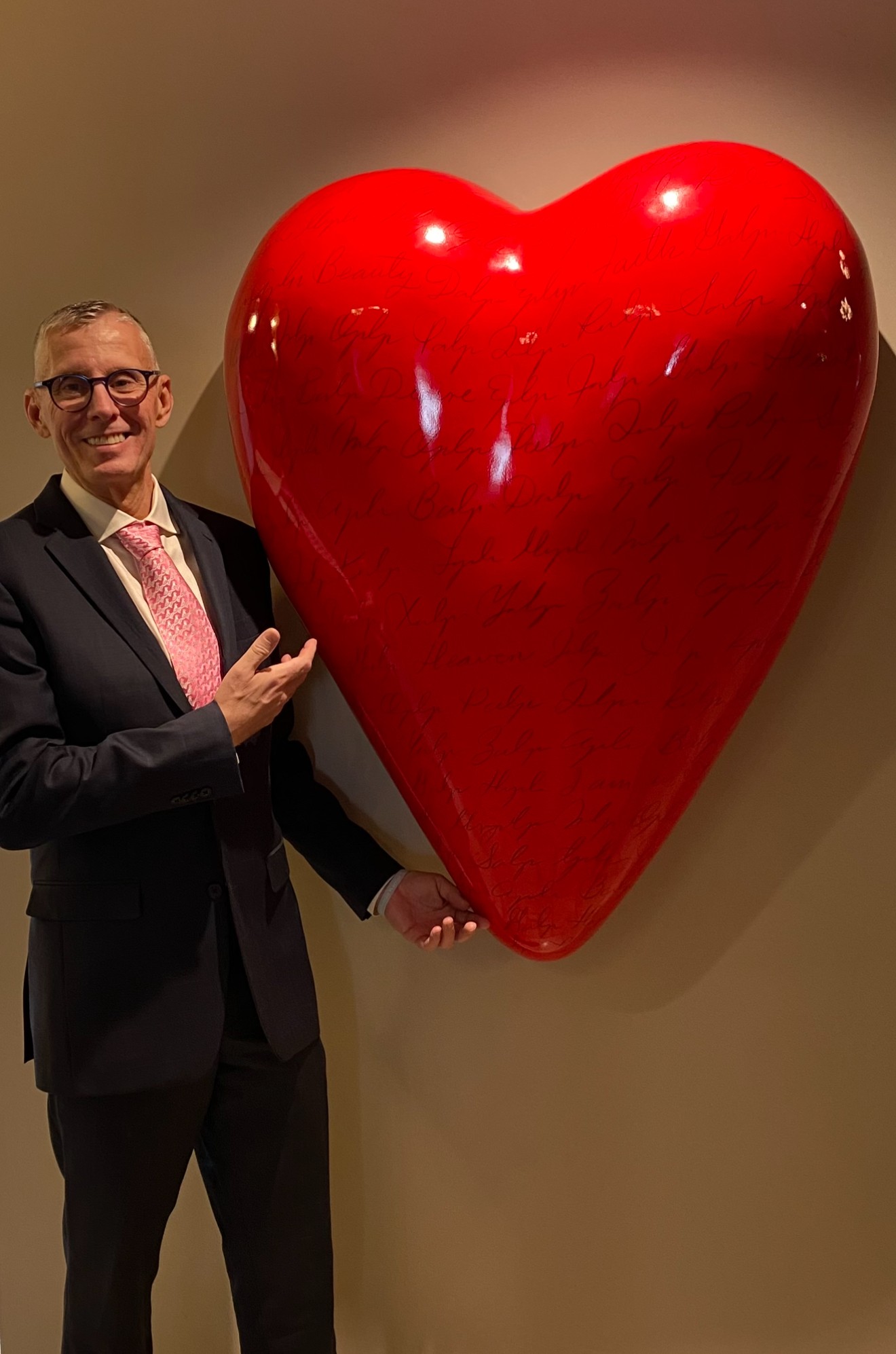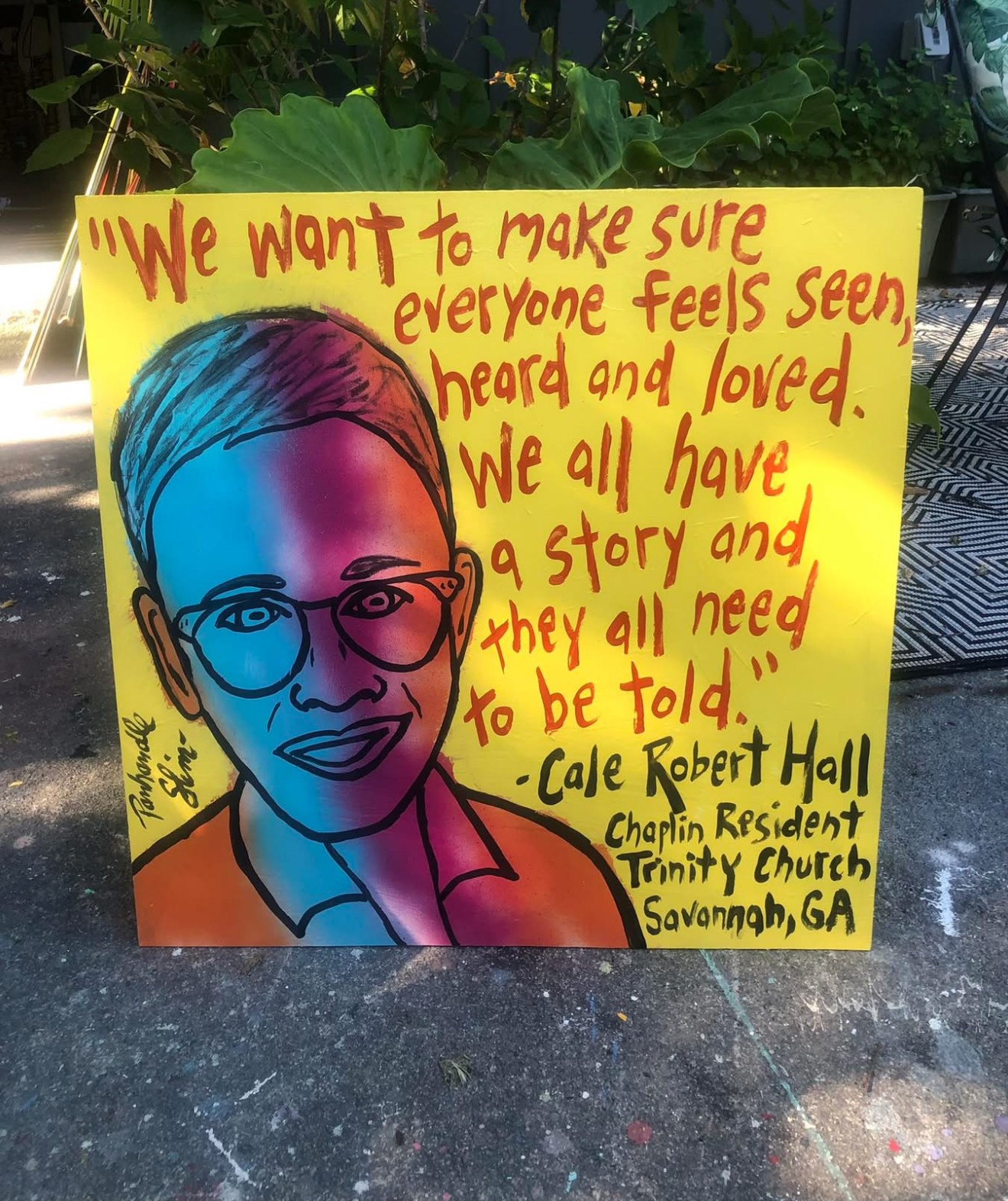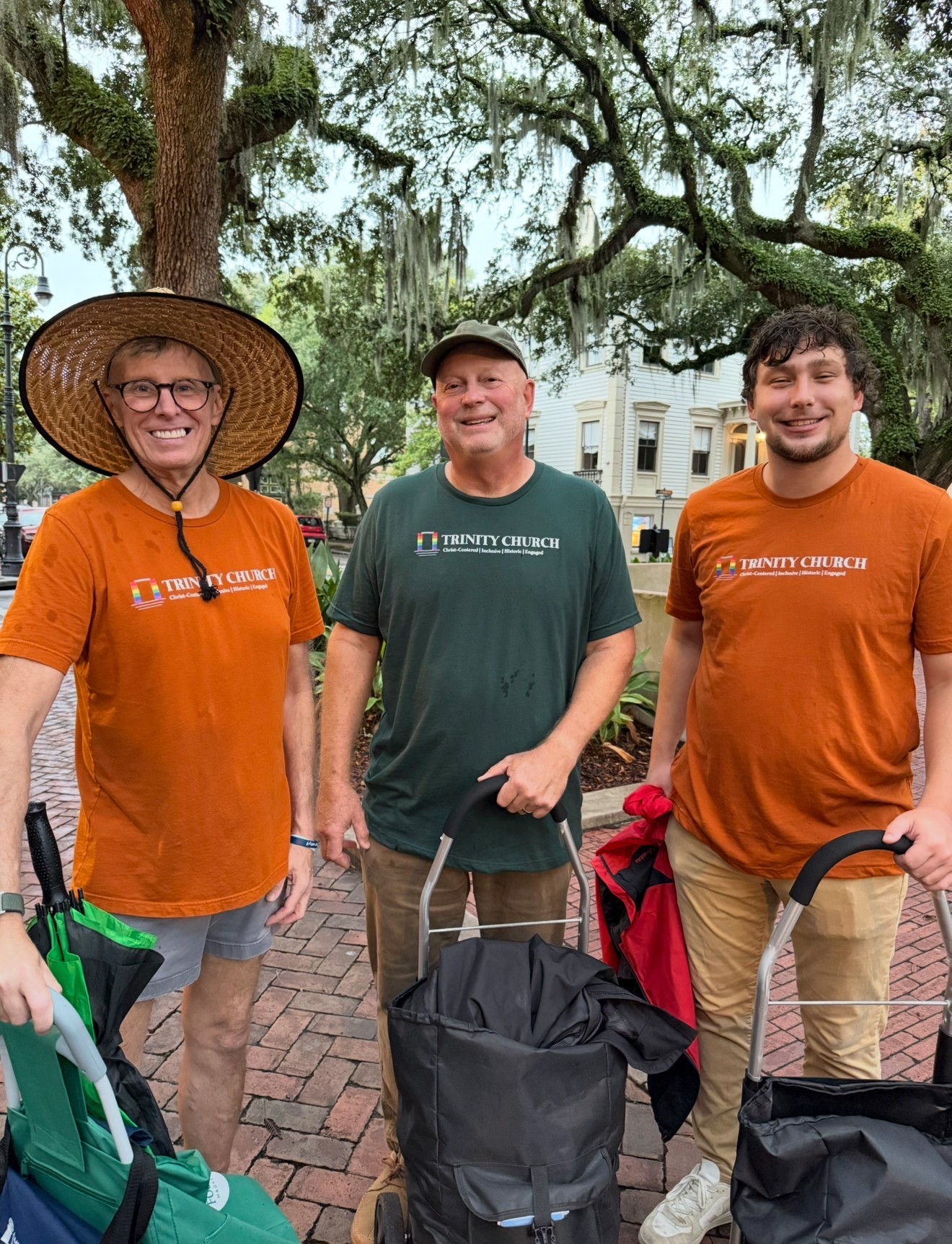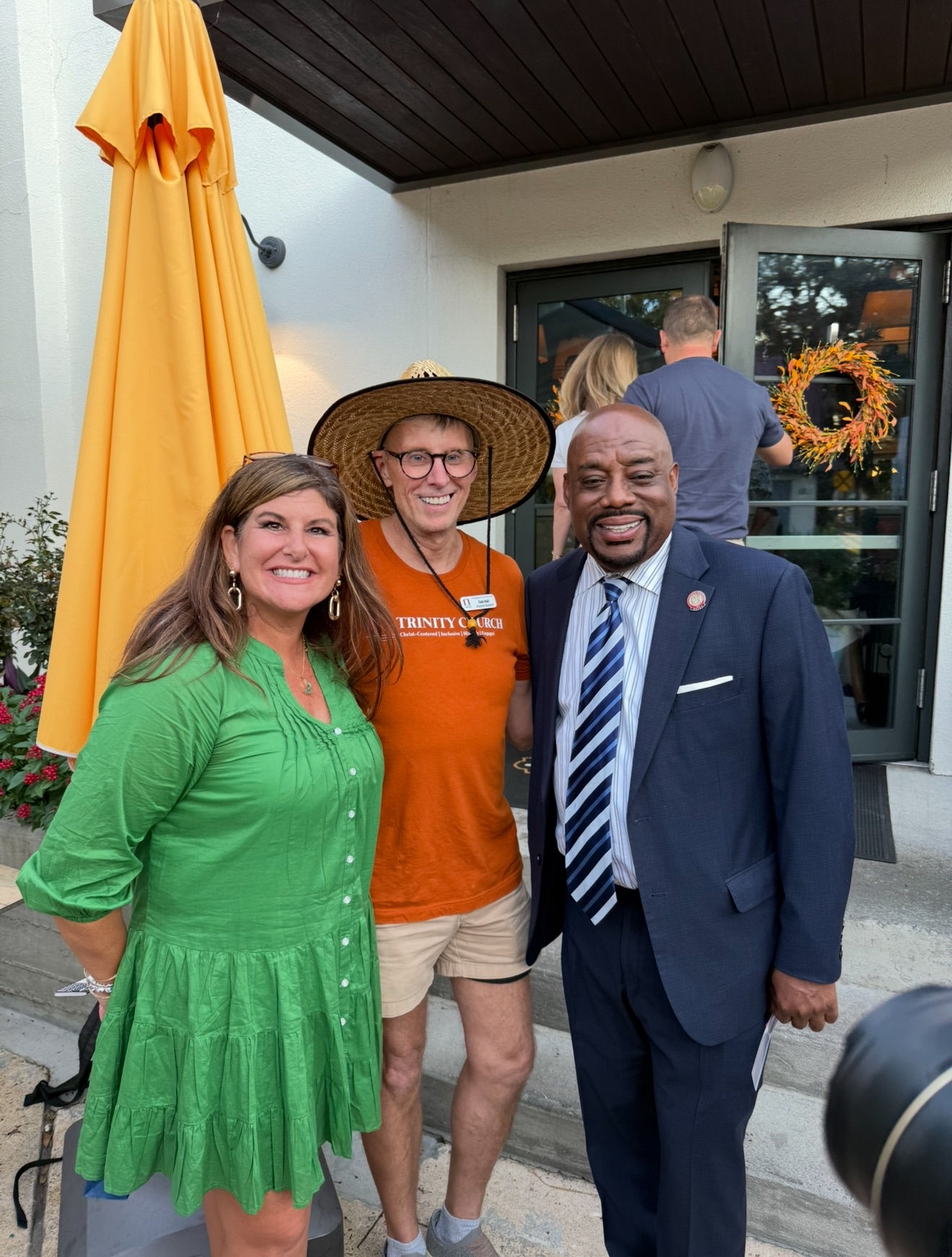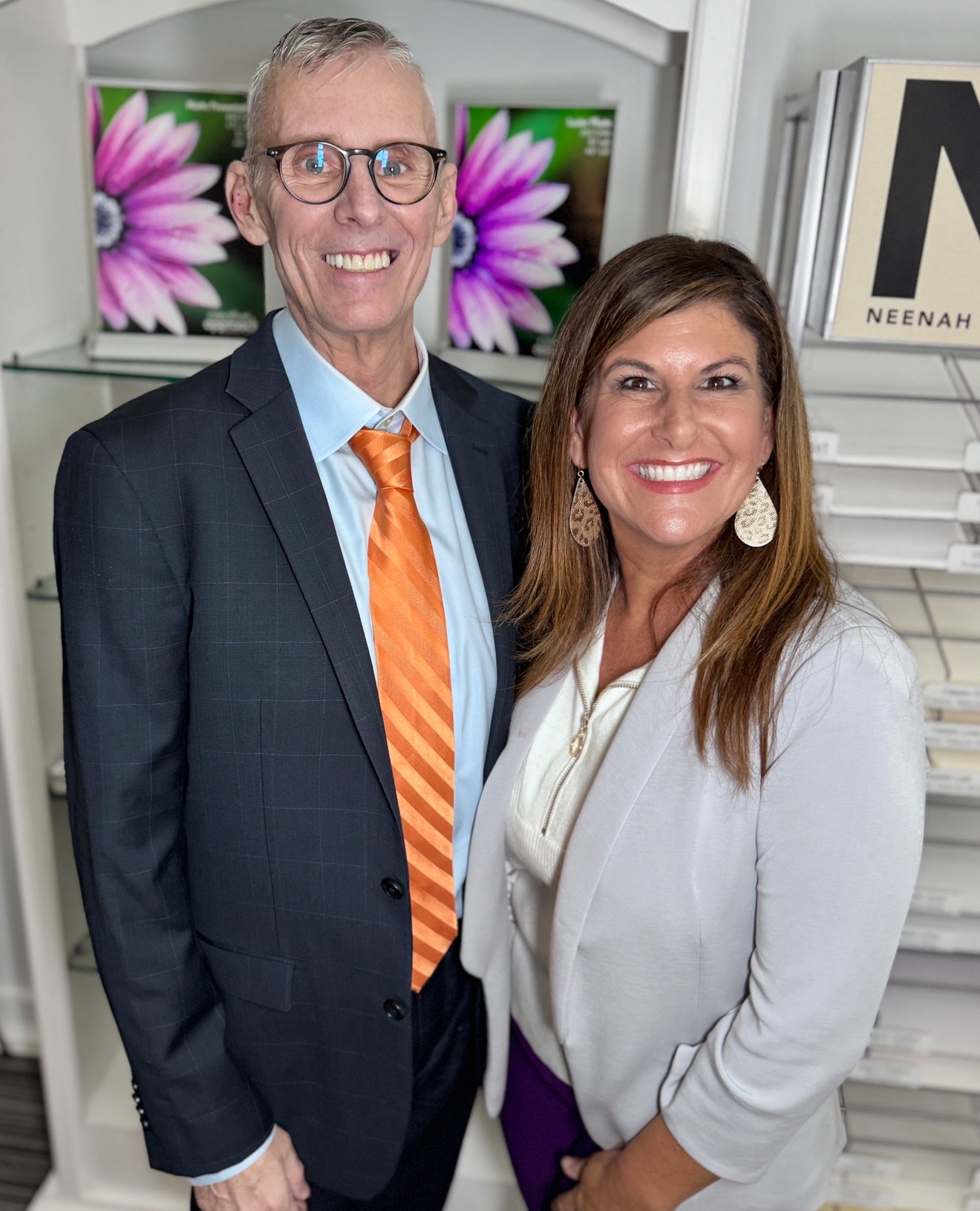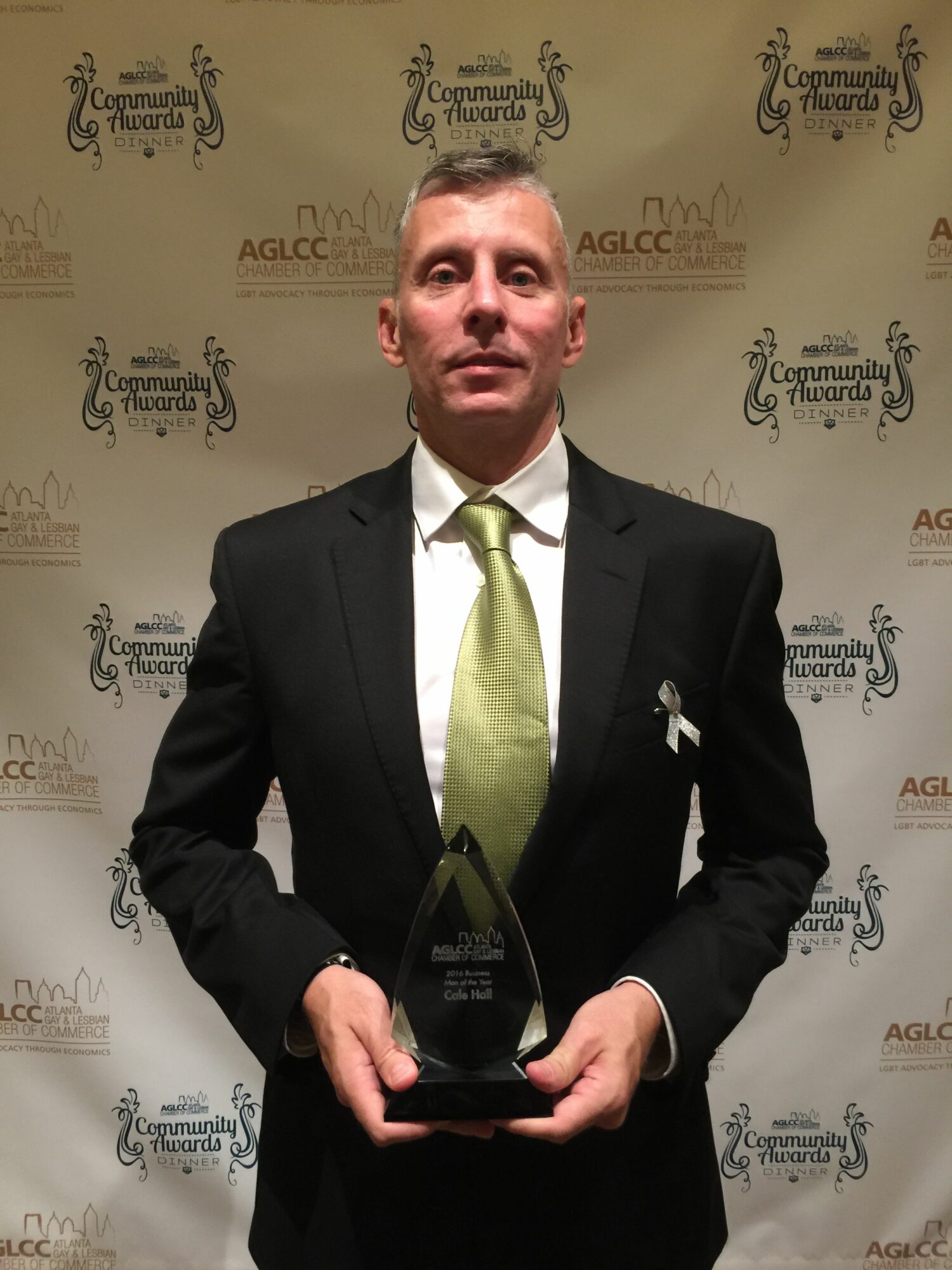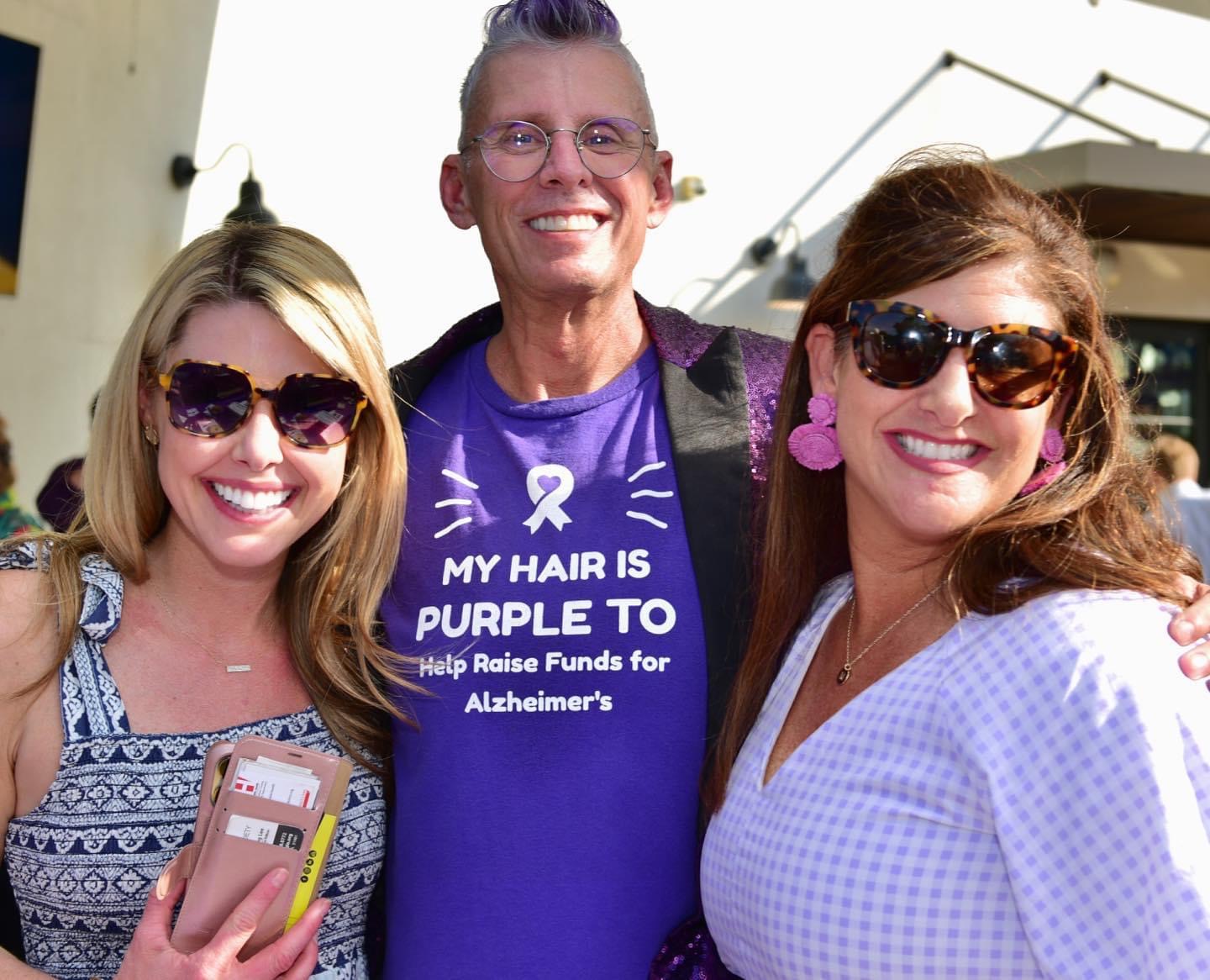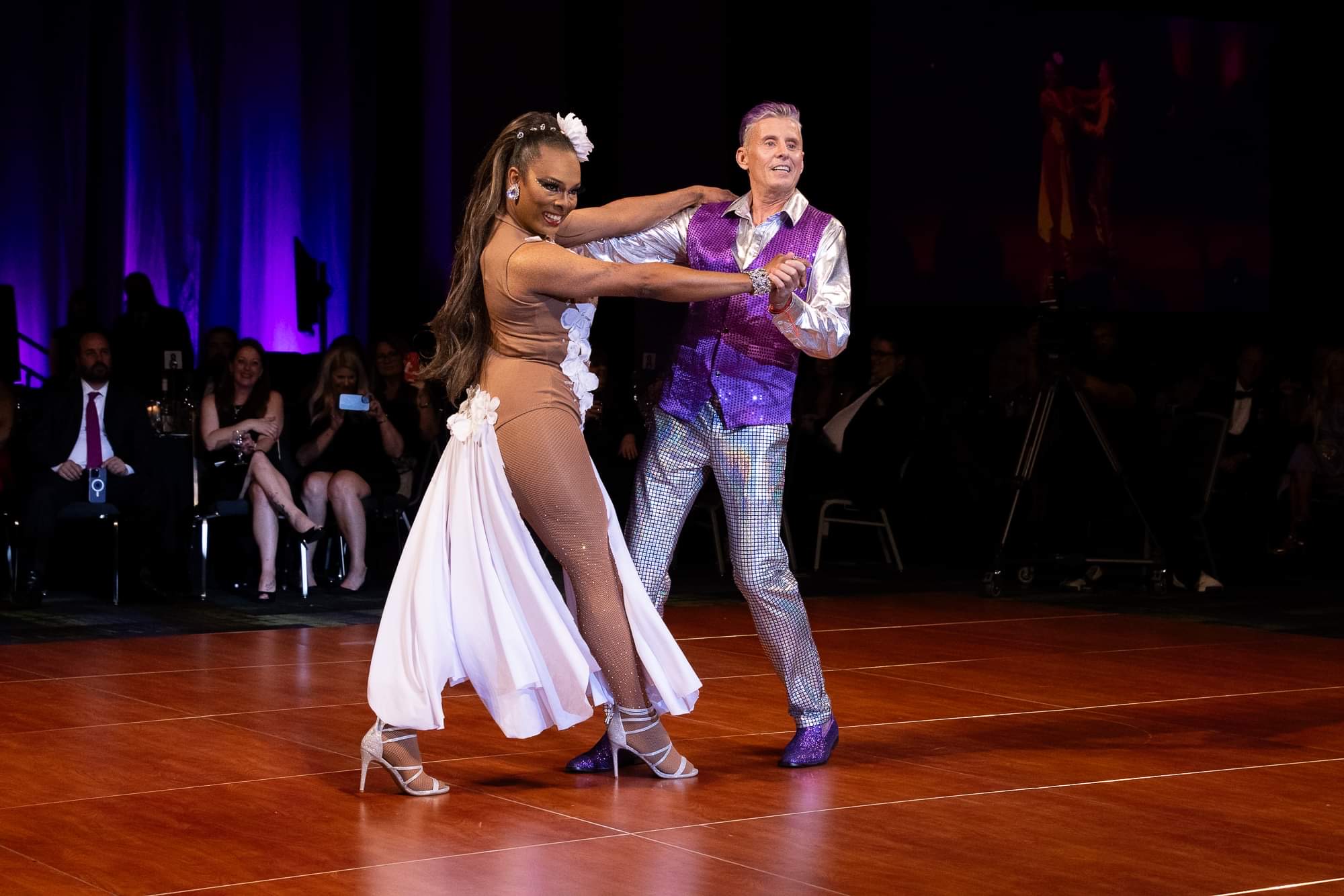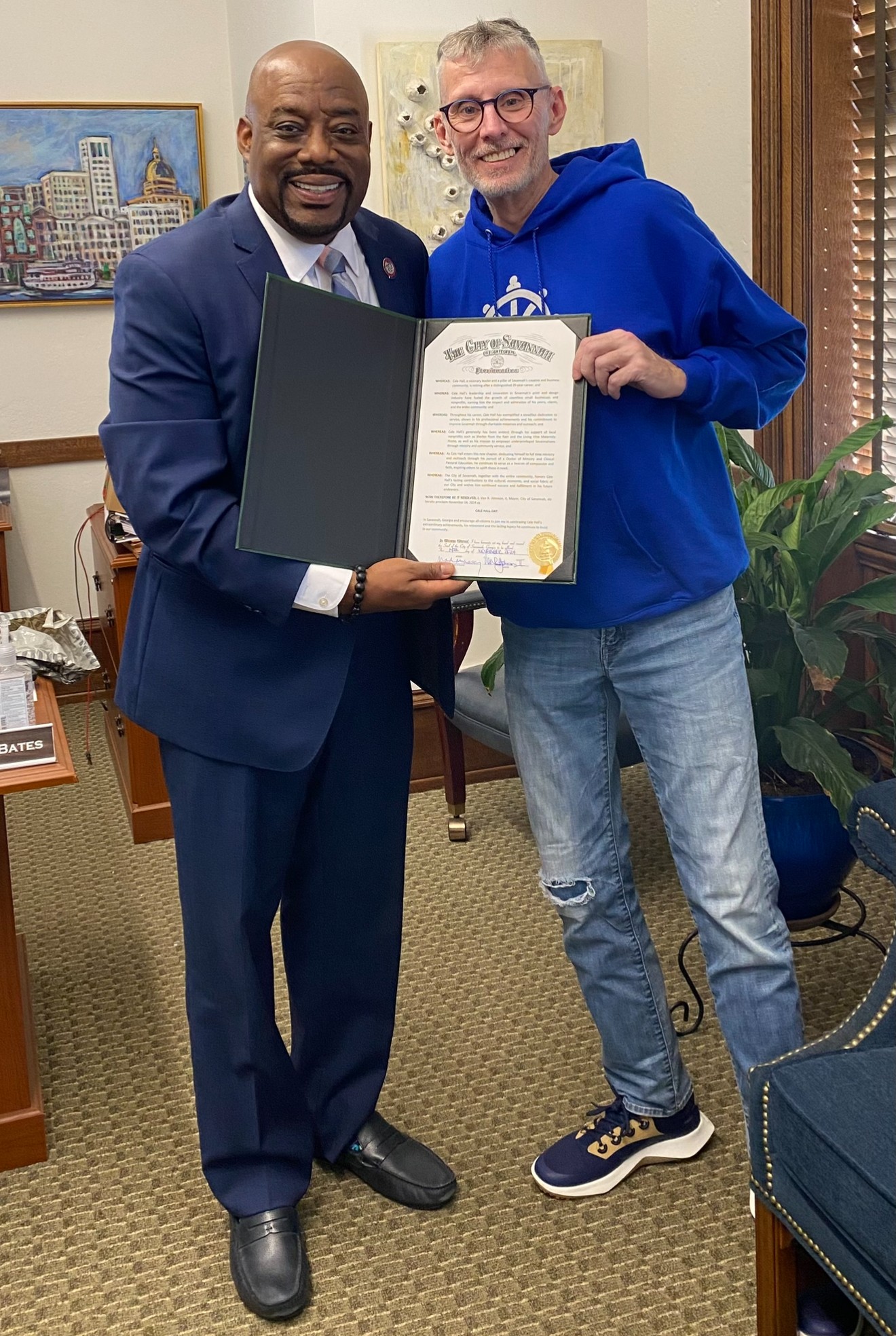

Today we’d like to introduce you to Cale Robert Hall.
Hi Cale Robert, so excited to have you with us today. What can you tell us about your story?
I was born in Alma, Georgia, in 1970. My biological parents met at Central State Hospital—often called the world’s largest mental hospital at the time—married, and settled near his family in Alma. After I was born, he left. She had a breakdown. The story of my first years is mostly gaps—from birth until I was adopted at four, I was taken from place to place with few details filled in.
At four, Grace and Bob adopted me. They were fifty years older—Roaring‑Twenties babies raised by the Great Depression—and they had never had children before me. I was their only child. Life with them was steady and practical: save before you spend, fix before you replace, keep your word, leave the porch light on. It was also, if I’m honest, more transactional than relational—bills paid, meals made, chores done—love expressed in duty more than in language or long hugs. That shaped me, too.
The Central State thread matters. I was diagnosed later in life with bipolar disorder, and while diagnosis isn’t destiny, my parents’ meeting at a psychiatric hospital tracks with the family story I carry. Knowing that didn’t scare me; it explained some weather patterns in my mind. It also taught me to treat mental health like any other health—address it, learn it, build supports around it.
Those early years stamped an ethic—work, thrift, neighborliness—and taught me to translate across generations. I mowed lawns at 10, sold “p‑nuts” on Highway 80 to beach traffic (sun on my neck, salt in the air), worked at Krispy Chic at 14, went to Bible Baptist from kindergarten through most of high school, and graduated from Sol C. Johnson. Being adopted taught me something I didn’t have words for yet: belonging can be chosen. Later, when I was told that being gay made me broken and bound for hell, that early lesson kept a pilot light burning—family and faith could be places of welcome, not weapons.
Years down the road, Asbury Memorial UMC—and, in the present, Trinity Church UMC on Telfair Square—became proof. Church as a table with a chair for me, no pop quiz at the door. That chosen, relational belonging is the through‑line into everything that followed.
After high school I knew I wasn’t ready for college, so I took a job at KEM Distributing, driving a beer truck. That route turned into a map of the city—and an introduction to the folks at Club One. I started barbacking in 1989. Club One was a master class in people: how to run a room, pace a night, read what isn’t said. I moved from barback to manager to partner, and learned that hospitality is both choreography and care. It’s logistics, yes—and it’s also belonging.
When I turned 30 in 2000, I enrolled at South College (now South University). Day classes met night shifts. The rhythm worked. The more I studied, the more I could put names to what we were building at the club—operations, systems, leadership—so the work got sharper.
We opened Creative Approach in October 2004. The promise was simple: great design and print, delivered with heart and on deadline. We learned our clients’ names and told the truth about what was possible—then found ways to make more possible. The shop grew from an idea to a team to a brand Savannah recognized.
To strengthen the backbone, I earned a Doctorate in Business in 2013—not to collect letters (though the tassel moment was sweet), but to lead better: cleaner decisions, steadier operations, healthier culture.
In 2014, I moved to Atlanta to open our second Creative Approach. A larger market stretched our systems—and me. While there, I started seminary at Emory University and began working as a chaplain. On paper, that reads like a left turn. In practice, it was the same calling sung in a different key: showing up for people. Chaplaincy taught me how to sit with grief without rushing it, to hear beneath the words, to trust that presence can be its own competence.
Then came 2020. COVID forced the Atlanta location to close. It was hard and clarifying. I returned my focus to Savannah and to what had always anchored me: our team, our clients, and work that helps a community move forward. For years I stayed engaged with our Savannah operation; as Creative Approach ultimately closed, I carried its values into what I do now.
Today, my week is a braid. I teach online. I’m finishing my Doctor of Ministry at Emory and completing my final unit of Clinical Pastoral Education—training that stretches empathy into muscle memory. At Trinity Church UMC, we started a ministry called Square One. It’s built for people who are beginning again—after a move, a loss, a career shift, or just that quiet nudge that it’s time. We keep it simple on purpose: a soft landing and a clear next step. That looks like real conversation, practical help where we can, referrals when that’s wiser, and spiritual care that doesn’t require anyone to have it all together. Less program, more place to land.
If there’s a through‑line from Highway 80 to Club One to Creative Approach to Square One, it’s this: build things that build people. The early jobs taught me grit and customer care. Club One taught me the power of a well‑held room. The school gave me language for the work. Creative Approach proved that excellence and kindness can share a business plan. Chaplaincy and seminary taught me to hold a story without trying to fix it. And Square One is where it all lands—right here at home, making room for new beginnings. Show up. Listen first. Offer the next faithful step. Keep the light on.
Selected Honors & Community Roles
City of Savannah Mayoral Proclamation — “Cale Robert Hall Day,” Nov 14, 2024
Dancing with the Stars (Alzheimer’s Association of Coastal Georgia), 2023
Leukemia & Lymphoma Society, Man of the Year (Atlanta), 2018
Volunteer Savannah AIDS Walk for Life, 1990-1998
President, Savannah Licensed Alcohol Association, 2002–2003
Star of the South (South Magazine), 2008
American Diabetes Association “Kiss‑a‑Pig” — Winner (2007); Contestant (2002–2004)
Out Georgia — Metro Atlanta Business Man of the Year, 2016
Professional & Civic Memberships
Savannah Chamber of Commerce;
Downtown Business Association;
Tourism Leadership Council
American Marketing Society;
Digital Marketing Society
Metro Atlanta Chamber of Commerce;
Out Georgia;
National Gay and Lesbian Chamber of Commerce;
Metro Atlanta Association of Professionals
Leadership Savannah;
American Forest Therapy Association;
Midtown Alliance
Rotary Savannah East;
Interagency Council on Homelessness
Can you talk to us a bit about the challenges and lessons you’ve learned along the way. Looking back would you say it’s been easy or smooth in retrospect?
Short answer: no—and the long answer matters.
In 2004, while we were launching Creative Approach, my addiction was accelerating. From the outside, I looked busy and successful; inside, I was unraveling. The first public crack came with a DUI in 2008. I told myself I’d course‑correct. Instead, I pushed harder at work and kept sliding.
By 2010, I was diagnosed with AIDS. In 2011, I was hit with Kaposi Sarcoma and went through five rounds of chemo. With treatment, within a year, I no longer met the clinical definition of AIDS—I was living with HIV and moving forward. Then came 2013: I finished my Doctorate in Business and also had another DUI. That year held success and self‑sabotage in the same hands.
I moved to Atlanta in 2014 to open our second Creative Approach. While there, I started seminary at Emory and began chaplaincy work—learning to sit with people when life is loud. In 2019, I was diagnosed at Emory with Castleman disease. Since then, I’ve had 50‑plus rounds of chemo and related treatments, split between Piedmont (Atlanta) and the Mayo Clinic after moving back to Savannah. Then COVID closed our Atlanta shop in 2020. Packing boxes felt like grief with spreadsheets attached.
Another layer: I’m gay. For years, I was told I was broken and bound for hell. That message lodged deep. It warped how I saw God and myself. It didn’t stop me, but it bent the mirror. What started to unbend it was the United Methodist Church—specifically, Asbury Memorial UMC. Not Trinity—Asbury Memorial is where my spiritual life first steadied again, where I heard and experienced that I wasn’t an exception to love.
Sobriety came later than I wished, but right on time for me. AA gave me a community I absolutely love—people who tell the truth, show up, and keep each other honest. That kind of belonging heals what lectures can’t touch.
All of that—addiction and recovery, HIV, cancer, Castleman disease, grief and grace, the harm of bad theology and the repair of good community—flows straight into Square One. We built Square One as a room for people beginning again: recovery‑friendly, grief‑literate, and openly welcoming. The commitments are simple:
Presence before fixes. People aren’t projects.
One next faithful step. Not ten; one—practical, doable, shared.
Belonging without a pop quiz. You don’t have to believe perfectly to be loved practically.
Radical welcome. Queer‑affirming, stigma‑aware, judgment‑free.
My struggles didn’t disqualify me; they drafted the blueprint. Illness taught limits. Chemo taught patience. AA taught honesty. Asbury Memorial taught me I’m not outside grace. And now, at Trinity UMC, Square One is how I tithe that story back—by building the kind of space I needed when I was told I didn’t belong, and by creating the type of community that helped me begin again.
As you know, we’re big fans of you and your work. For our readers who might not be as familiar what can you tell them about what you do?
I am working to Bridge Business and Care in Savannah’s Squares.
The first thing I want to stress is that this is not a scheme to proselytize. As a chaplain, that is not what I am trained to do. Of course, if a friend asks to discuss God, Jesus, and such, we can talk, but it is not my place to lead the conversation. We are giving the gift of presence and love.
Creative Approach is closed, and Club One has been sold. People assume that means I’ve stepped back. Truth is, I’ve stepped toward something—combining seminary formation and chaplaincy with four decades of downtown business relationships to help our city care for our unhoused neighbors and keep merchants in the loop.
My days start on foot—in Telfair Square and walking through at least 13 or 14 blocks for four or five days a week—listening first. I wear a Trinity tee so folks know I’m safe to approach. I learn names and build trust. That “embodied listening” sits at the center of Square One, the outreach I’m leading from Trinity UMC as my final doctoral project at Emory’s Candler School of Theology. Once the study is done in May, I plan to continue the work.
What makes this different is the bridge. I’m intentionally staying active with the Downtown Business Association, the Savannah Chamber, and the Tourism Leadership Council, sharing real‑time updates. Hence, the business community hears how things actually are in the squares—human stories, not rumors or statistics. The goal isn’t to “move people along”; it’s to move with people toward next steps, while helping shop owners and managers feel supported, not sidelined. I’m also working with the Mayor and have his full support as we scale the model.
How the model works (in plain terms)
Be present, then coordinate. First, we show up consistently in the squares and listen. Then we bring in stakeholders—business leaders, the Chamber, DBA, TLC, CSAH, City Hall, SPD, and clergy—to align expectations and create a unified, compassionate downtown response.
We are working with PAD in Atlanta (Policing Alternatives & Diversion Initiative) to learn more about how we can implement the steps below in our community.
Call us, whether it’s me, the chaplain, or someone else —trainer first, not our police officers (for non‑emergencies). We’re building a simple contact path so business owners can reach us first. From there, we connect people to partners like The Dive Savannah, Union Mission, and CSAH, lowering non‑emergency police calls and raising dignity.
Practice radical hospitality. Think weekly coffee hours when agencies are closed, daily water and orange talks, short “Chapel in the Square” services open to all, and quarterly resource fairs. It’s warmth, food, prayer, music—neighbors being neighbors.
Train the village. We equip volunteers and business partners in trauma‑informed engagement and first‑response listening—so more of us can be helpful, fast.
Why is it essential for businesses to stay in the room?
I’ve been a downtown owner for 40 years. Those relationships matter. By staying in the DBA, Chamber, and TLC conversations, I can translate—helping merchants see our friends in the squares as people instead of “problems,” and helping clergy and service providers hear what keeps shop owners up at night. That two‑way trust is how a city changes its reflexes.
What love looks like on a Tuesday
Some days it’s a cup of coffee and a phone call to get someone a bed. Other days, it’s a chaplain handling a tense moment, so a manager doesn’t have to. Always, it’s love, warmth, and kindness—the basics of being human—paired with a concrete next step. And because this is anchored at Trinity UMC and designed as a Candler doctoral project, the work is both pastoral and practical: scripture in one hand, a referral list in the other.
The short version? Savannah doesn’t have to choose between a thriving business district and compassion in our squares. We can do both—together, on purpose, and out loud. Square One is simply our way of keeping that promise.
Is there something surprising that you feel even people who know you might not know about?
Most people are surprised to learn I was born in Alma, Georgia, adopted at four by parents fifty years older than me, and later diagnosed bipolar—experiences that taught me resilience, empathy, and the value of stability. Today, I’m channeling those lessons into building bridges between Savannah’s business community and our friends in the squares, ensuring compassion and commerce work hand in hand to strengthen our city.
Contact Info:
- Instagram: https://www.instagram.com/itscaleroberthall
- Facebook: https://www.facebook.com/CaleRHall
- LinkedIn: https://www.linkedin.com/in/cale-robert-hall-thm-mals-dba-he-him-his-b424616/
- Twitter: https://www.
